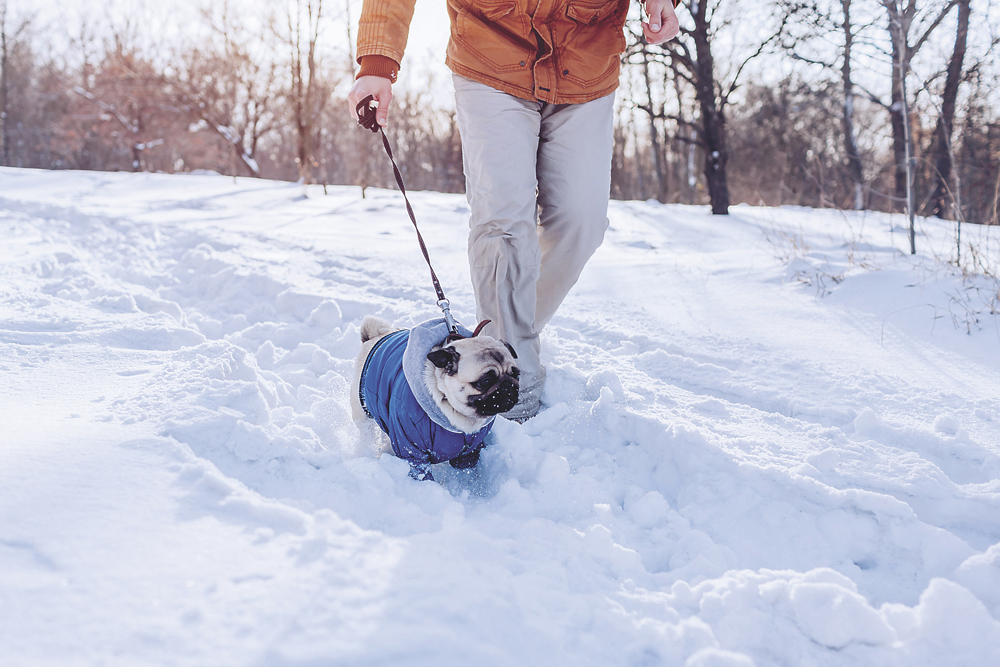ASPCA urges pet owners to take precautions in winter weather

The ASPCA® (American Society for the Prevention of Cruelty to Animals®) is reminding pet owners that cold temperatures can be particularly dangerous for pets.
“Winter weather can be just as dangerous for pets as it can be for people, but there are many ways to prepare our pets and ensure their safety in potentially hazardous weather conditions,” said Dr. Lori Bierbrier, Senior Medical Director, ASPCA Community Medicine. “Pets can freeze, become disoriented, lost, injured, or even killed from being left outdoors in the cold.”
To help prevent cold weather dangers from affecting your pet’s health, please remember the following advice from ASPCA experts during severe winter weather:
•If it is too cold for you, it is probably too cold for your pet. Keep your pets inside where they can stay cozy and safe. Ensure your furry companion has a warm place to sleep that is off the floor and away from drafts. If you see symptoms of frostbite, contact your veterinarian immediately.
•After each walk, make sure to clean and properly dry your pet’s feet and stomach. You may also want to bring a towel on long walks to clean off irritated paws. While on a walk, your pet may step in ice, salt, and chemicals – which can be very painful. Remember to check for cracks in paw pads or redness between the toes. Booties can be effective in covering and protecting paws when out on walks.
•Never shave your pet down to their skin, and try not to bathe them as often during cold spells. Longer coats provide more warmth, like wearing a winter coat. If your pet is long-haired, just trim them to minimize clinging ice balls, salt crystals, and de-icing chemicals that can dry out their skin. Bathing too often can remove necessary essential oils and increase the chance of developing dry, flaky skin. If you must bathe your pet, use a moisturizing shampoo and/or rinse recommended by your veterinarian.
•Thoroughly clean up any antifreeze spills. Antifreeze is lethal for both dogs and cats, and pet parents should be extra careful when using this chemical. Consider using products that contain propylene glycol rather than ethylene glycol. Additionally, cold weather chemicals like ice melts can be dangerous when ingested, so always be mindful and keep chemicals up and out of paws’ reach. If you suspect your pet has been exposed to any poisonous substances, contact your veterinarian or call ASPCA Animal Poison Control Center (APCC) at 888-426-4435 immediately.
•Keep your dog on the leash in snow or ice, especially during a snowstorm. Dogs can lose their scent in the snow and easily become lost. Many dogs are lost during the winter season, so make sure your dog always wears an ID tag and consider visiting a veterinarian for a microchip implant.
•During the winter, outdoor cats sometimes seek shelter underneath cars. Bang loudly on the car hood before starting the engine to give cats a chance to escape.
Provided information


